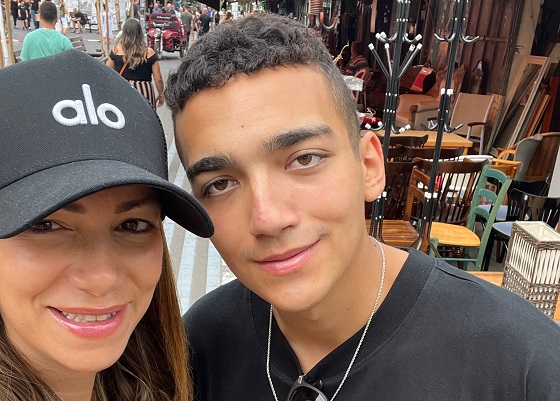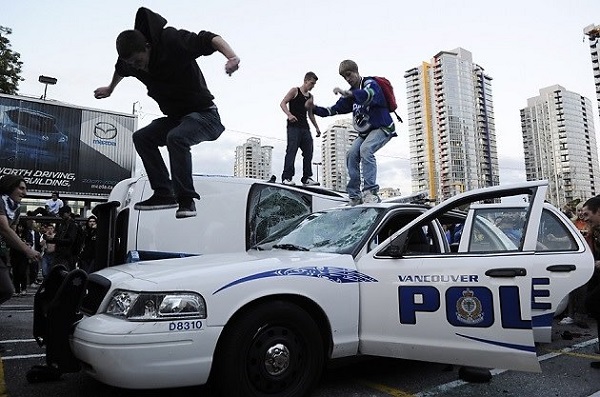Censorship Industrial Complex
Kennedy, CHD win injunction in landmark censorship case against Biden administration

From LifeSiteNews
This article was originally published by The Defender — Children’s Health Defense’s News & Views Website.
The court recognized that the “right of free speech is a fundamental constitutional right that is vital to the freedom of our nation, and the Kennedy plaintiffs have produced evidence of a massive effort by defendants, from the White House to federal agencies, to suppress speech based on its content.”
A federal judge on Wednesday handed Robert F. Kennedy Jr. and Children’s Health Defense (CHD) a partial win in their landmark censorship case alleging the Biden administration colluded with social media platforms to unlawfully censor online content.
Judge Terry A. Doughty of the U.S. District Court for the Western District of Louisiana issued a preliminary injunction prohibiting key Biden administration officials and agencies from coercing or significantly encouraging social media platforms to suppress or censor online content.
However, Judge Doughty simultaneously issued a stay on the injunction until 10 days after the U.S. Supreme Court rules on a similar case, Murthy v. Missouri.
That case, filed in May 2022 by the attorneys general of Missouri and Louisiana and several individual plaintiffs, was originally filed as Missouri v. Biden.
The Supreme Court is set to hear arguments on March 18 on a preliminary injunction in Murthy v. Missouri.
Mary Holland, CHD president, told The Defender that the Valentine’s Day ruling was “a welcome Valentine to the Kennedy plaintiffs,” and “an important victory for the U.S. Constitution.”
She added:
“In a thorough decision, Judge Doughty reasoned that the plaintiffs do have ‘standing’ or the right to sue and be heard; that the defendants have engaged in coercion or significant encouragement to censorship and joint action with social media platforms; and that the court is required to issue the preliminary injunction.
“Further, because it is well-established that violations of free speech rights constitute irreparable injury, the Court acted even before an ultimate decision from the Supreme Court in Murthy v. Missouri. Judge Doughty wrote: ‘This Court … finds the balance of equities and the public interest strongly favors the issue of a preliminary injunction.’
“No doubt the Supreme Court will take account of this ruling as it hears oral arguments in Murthy v. Missouri on March 18.”
Wednesday’s ruling stems from a class-action lawsuit filed in March 2023 by Kennedy, now CHD chairman on leave, CHD and private citizen Connie Sampognaro against President Joe Biden, Dr. Anthony Fauci and other top administration officials and federal agencies.
The suit was filed on behalf of the more than 80% of Americans who access news through social media.
Judge Doughty consolidated Kennedy v. Biden and Murthy v. Biden in July 2023. Both cases were being argued in his court and had the same defendants and many common legal and factual issues.
Although the cases were consolidated, Doughty ruled that the District Court continues to have jurisdiction over Kennedy and CHD’s separate motion for a preliminary injunction, underscoring the fact that a delayed ruling would delay Kennedy from vindicating his claims.
The U.S. Department of Justice did not respond to The Defender’s request for comment.
‘The right of free speech is a fundamental constitutional right’
In his 24-page ruling, Judge Doughty found that several of the defendants in the Kennedy et al. v. Biden lawsuit were violating the plaintiffs’ free speech rights under the First Amendment, causing irreparable harm. He ordered them to cease these violations.
The court recognized that the “right of free speech is a fundamental constitutional right that is vital to the freedom of our nation, and the Kennedy plaintiffs have produced evidence of a massive effort by defendants, from the White House to federal agencies, to suppress speech based on its content.”
Plaintiffs alleged Biden administration officials “waged a systematic, concerted campaign” to compel the nation’s three largest social media companies to censor constitutionally protected speech.
The government, the lawsuit alleges, pressured social media platforms to directly suppress or censor Kennedy and CHD from major platforms and to do the same to content containing views about COVID-19 and other issues that contradicted the government narrative.
Kennedy and CHD argued the court should rule on the preliminary injunction now, because the case is different from Murthy v. Missouri, asks for a more specific injunction and because the defendants singled out Kennedy, who is a U.S. presidential candidate, for censorship.
In determining the merits of the plaintiffs’ motion, Doughty first had to rule on whether the plaintiffs had standing. On that issue, “the court provided strong concrete examples of government coercion or encouragement to censor, particularly with respect to Mr. Kennedy and CHD,” said Kim Mack Rosenberg, CHD general counsel.
Doughty cited evidence that defendants labeled Kennedy as part of the “Disinformation Dozen” who were eventually censored from social media and that some of CHD’s social media posts were also censored.
He also noted that the Centers for Disease Control and Prevention (CDC) worked with the Virality Project to reduce or delete social media posts by people and organizations they believed to be spreading “misinformation” about COVID-19.
The Virality Project explicitly listed Kennedy and CHD in the fifth and second place as the highest performing weekly social-media engagement incidents, he wrote.
“This evidence also was key in the Court’s decision that plaintiffs met all the requirements to support issuing the injunction and that the balance of equities favored plaintiffs here,” Mack Rosenberg added.
Doughty also found the plaintiffs are likely to succeed on the merits of their claim, writing:
“As in Missouri v. Biden, the White House Defendants and the Surgeon General Defendants both coerced and significantly encouraged social-media platforms to suppress protected free speech.
“This Court further finds the CDC Defendants, the CISA [Cybersecurity and Infrastructure Security Agency] Defendants and the FBI Defendants significantly encouraged social-media platforms to suppress protected free speech.”
Defendants ‘likely’ to use their power to suppress alternative views in the future
The defendants have argued that the actions at stake occurred in the past and cannot be remedied by issuing an injunction prohibiting future actions and that there is no “imminent harm” to the defendants because the COVID-19 pandemic and the election where the alleged conduct occurred are in the past.
However, Doughty ruled that the alleged past actions also indicate there is a substantial risk of likely future harm.
“Defendants apparently continue to have meetings with social-media companies and other contacts,” he wrote, adding:
“Although the COVID-19 pandemic is no longer an emergency, it is likely that in the event of any other real or perceived emergency event, the Defendants likely would once again use their power over social-media companies to suppress alternative views.
“And it is certainly likely that Defendants could use their power over millions of people to suppress alternative views or moderate content they do not agree with in the upcoming 2024 national election.”
Although Doughty granted a substantial part of Kennedy et al.’s motion for a preliminary injunction against the White House, the surgeon general, the CDC, FBI and the CISA, he also denied the request for an injunction against several other agencies.
The injunction excluded the U.S. Department of State, the National Institute of Allergy and Infectious Diseases, the U.S. Food and Drug Administration, the U.S. Department of the Treasury, the U.S. Election Assistance Commission, and the U.S. Department of Commerce, who were also included in the plaintiffs’ request.
The Defender on occasion posts content related to Children’s Health Defense’s nonprofit mission that features Mr. Kennedy’s views on the issues CHD and The Defender regularly cover. In keeping with Federal Election Commission rules, this content does not represent an endorsement of Mr. Kennedy who is on leave from CHD and is running for president of the U.S. as an independent candidate.
This article was originally published by The Defender — Children’s Health Defense’s News & Views Website under Creative Commons license CC BY-NC-ND 4.0. Please consider subscribing to The Defender or donating to Children’s Health Defense.
Censorship Industrial Complex
Quebec court greenlights class action suit against YouTube’s COVID-related content censorship
From LifeSiteNews
The lawsuit, led by video blogger Éloïse Boies, argues YouTube violated freedom of expression under the Charter of Human Rights and Freedoms by censoring COVID-related content.
A class action lawsuit against YouTube’s censorship of COVID-era speech on the platform has been allowed to proceed in Canada.
The primary plaintiff in the case which has now been greenlit by the Quebec Superior Court is YouTuber Éloïse Boies, while the filing accuses the Google video platform of censoring information about vaccines, the pandemic, and the virus itself.
A copy of the order can be found HERE.
READ: Elon Musk skewers Trudeau gov’t Online Harms bill as ‘insane’ for targeting speech retroactively
Boies, who runs the “Élo Wants to Know” channel, states in the lawsuit that three of her videos got removed by YouTube (one of the censored videos was about… censorship) for allegedly violating the website’s policies around medical disinformation and contradicting World Health Organization and local health authorities’ COVID narratives of the time.
However, the content creator claims that the decisions represented unlawful and intentional suppression of free expression. In February, Boies revealed that in addition to having videos deleted, the censorship also branded her an “antivaxxer” and a “conspiracy theorist,” causing her to lose contracts.
The filing cites the Charter of Human Rights and Freedoms as the document YouTube violated, while the class-action status of the lawsuit stems from it including any individual or legal entity in Quebec whose videos dealing with COVID got censored, or who were prevented from watching such videos, starting in mid-March 2020 and onward.
Google, on the other hand, argues that it is under no obligation to respect the Charter of Human Rights and Freedoms, and can therefore not be held accountable for decisions to censor content it doesn’t approve of – or as the giant phrased it, provide space for videos “regardless of their content.”
But when Superior Court Judge Lukasz Granosik announced his decision, he noted that freedom of expression “does not only mean freedom of speech, but also freedom of publication and freedom of creation.”
Stressing the importance that Canada’s Supreme Court assigns to guaranteed freedom of expression as a key building block in a democratic society, the judge concluded that “If (Google) carries out censorship by preventing certain people from posting videos and prevents other people from viewing these same videos, it thus hinders the free circulation of ideas and exposes itself to having to defend its ways of doing things.”
Google was ordered to stop censoring content because it contradicts health authorities, WHO, or governments, pay $1,000 in compensation, and $1,000 in punitive damages to each of the lawsuit’s plaintiffs, as well as “additional compensation provided for by law since the filing of the request for authorization to take collective action, as per the court’s decision.”
As for those who were prevented from accessing content, the decision on damages will be the subject of a future hearing.
Reprinted with permission from Reclaim The Net.
Censorship Industrial Complex
Elon Musk skewers Trudeau gov’t Online Harms bill as ‘insane’ for targeting speech retroactively

From LifeSiteNews
It literally spits in the face of all Western legal traditions, especially the one about only being punished if you infringed on a law that was valid at the time of committing a crime
Billionaire tech mogul Elon Musk remarked that it is “insane” that the Trudeau government’s proposed “Online Harms” bill would target internet speech retroactively if it becomes law.
“This sounds insane if accurate!” wrote Musk on Tuesday, in reply to an X (formerly Twitter) user named Camus who detailed that Prime Minister Justin Trudeau’s government’s Bill C-63, the Online Harms Act, could see Canadians fined or even jailed for things posted on the internet prior to the bill becoming law.
Camus noted how Bill C-63 could give police “the power to retroactively search the Internet for ‘hate speech’ violations and arrest offenders, even if the offence occurred before the law existed.”
A brief time later, X’s “CommunityNotes” program – a system in which users collectively “fact-check” information shared on the site –confirmed what Camus had written was accurate, quoting a section of the bill’s text.
“Part 3 of Bill C-63, which is still at first reading stage and is not yet law, adds to the Canadian Human Rights Act: ‘a person communicates or causes to be communicated hate speech so long as the hate speech remains public and the person can remove or block access to it,’” CommunityNotes wrote.
Camus observed about Bill C-63 that the “Trudeau regime has introduced an Orwellian new law.”
“This new bill is aimed at safeguarding the masses from so-called ‘hate speech,’” he wrote. “The real shocker in this bill is the alarming retroactive aspect. Essentially, whatever you’ve said in the past can now be weaponized against you by today’s draconian standards.”
Camus observed how historian Dr. Muriel Blaive has weighed in on “this draconian law,” labeling it outright “mad.”
“She points out how it literally spits in the face of all Western legal traditions, especially the one about only being punished if you infringed on a law that was valid at the time of committing a crime,” wrote Camus.
Bill C-63 was introduced by Liberal Minster Attorney General Arif Virani on February 26 and was immediately blasted by constitutional experts as troublesome.
The bill, if passed, will modify existing laws, amend the Criminal Code as well as the Canadian Human Rights Act, in what the Liberals claim will target certain cases of internet content removal, notably those involving child sexual abuse and pornography.
However, the bill also seeks to police “hate” speech online with broad definitions, severe penalties, and dubious tactics.
Trudeau’s new bill a ‘terrible attack’ on speech, Musk warns
On Tuesday, well-known Canadian psychologist Jordan Peterson replied to Musk by saying about Bill C-63, “It’s much much worse than you have been informed: plans to shackle Canadians electronically if accusers fear a ‘hate crime’ might (might) be committed.”
“It’s the most Orwellian piece of legislation ever promoted in the West.”
Musk replied to Peterson by saying Bill C-63 is “[a] terrible attack on the rights of Canadians to speak freely!”
Other notable X users, such as Canadian lawyer David Freiheit, who is known online as Viva Frei, confirmed Musk’s concern that Bill C-63 could go after X users from posts/tweets made long ago.
“It’s pretty close to accurate, Elon. If someone has the ability to delete a ‘hate speech’ tweet / post and does not, and someone else retweets that tweet, it would qualify as ‘publication’ under the law and be sanctionable,” he wrote.
Details of the new legislation to regulate the internet show the bill could lead to more people jailed for life for “hate crimes” or fined $50,000 and jailed for posts that the government defines as “hate speech” based on gender, race, or other categories.
The bill also calls for the creation of a digital safety commission, a digital safety ombudsperson, and a digital safety office.
The Justice Centre for Constitutional Freedoms (JCCF) has said Bill C-63 is “the most serious threat to free expression in Canada in generations. This terrible federal legislation, Bill C -63, would empower the Canadian Human Rights Commission to prosecute Canadians over non-criminal hate speech.”
In a recent podcast, Peterson and Queen’s University law professor Bruce Pardy warned of the “totalitarian” impact Trudeau’s new Online Harms bill will have on Canada.
Peterson observed that the Trudeau government is effectively “establishing an entirely new bureaucracy” with an “unspecified range of power with non-specific purview that purports to protect children from online exploitation” but has the possibility of turning itself into an internet “policing state.”
-

 Environment2 days ago
Environment2 days agoOfficial Temperature Data Aren’t ‘Data’ and Shouldn’t Be Used to Restrict Freedom
-
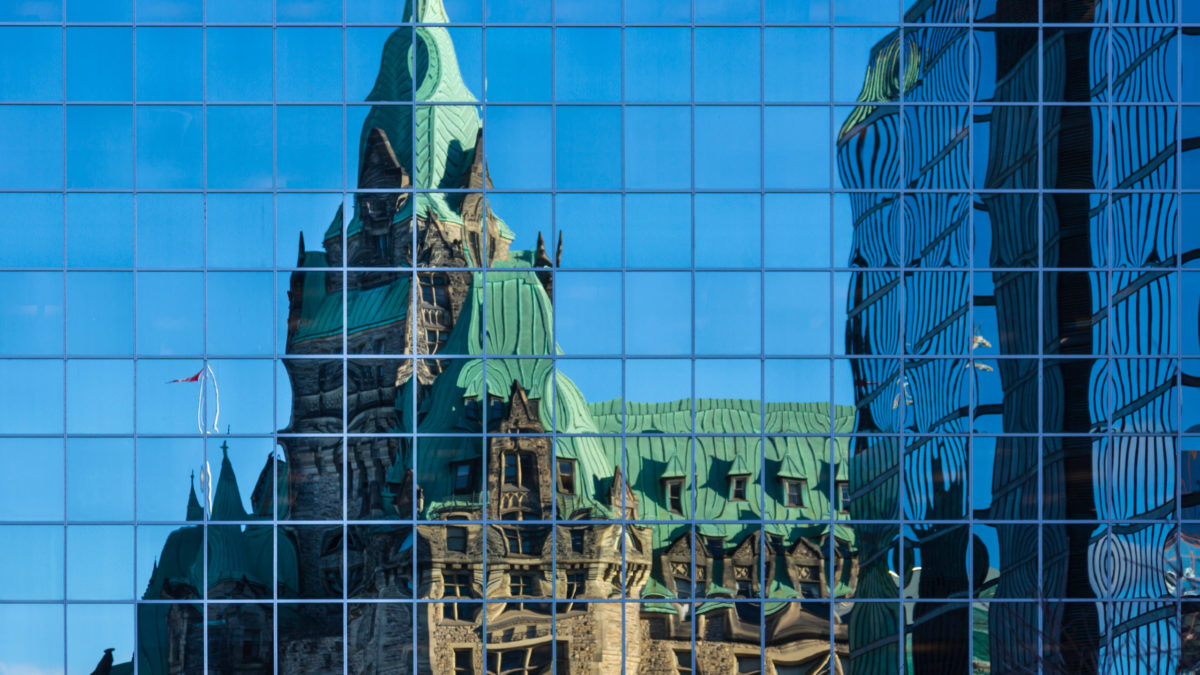
 Business2 days ago
Business2 days agoEconomic progress stalling for Canada and other G7 countries
-

 Agriculture1 day ago
Agriculture1 day agoFarming group accuses Canadian gov’t of trying to blame agriculture for ‘climate change’
-
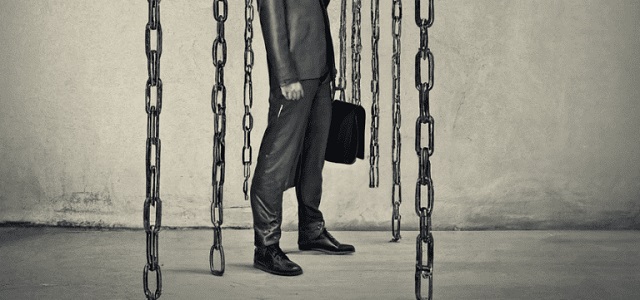
 Business2 days ago
Business2 days agoProposed changes to Canada’s Competition Act could kneecap our already faltering economy
-
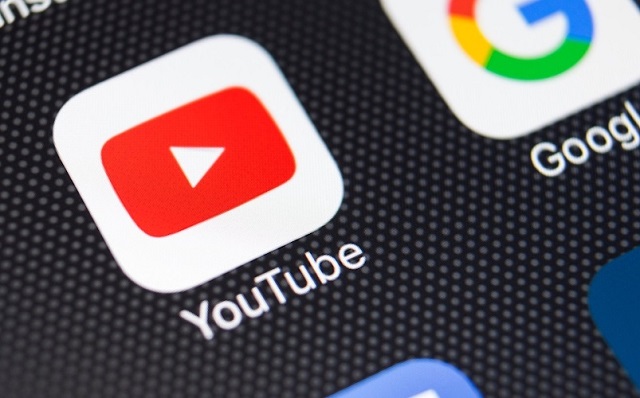
 Censorship Industrial Complex19 hours ago
Censorship Industrial Complex19 hours agoQuebec court greenlights class action suit against YouTube’s COVID-related content censorship
-
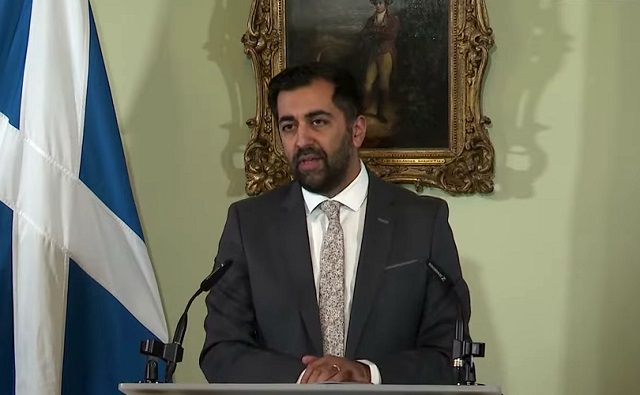
 Opinion2 days ago
Opinion2 days agoDoes Scottish gov’t turmoil signal the end of the ‘green’ agenda’s stranglehold on Europe?
-

 espionage18 hours ago
espionage18 hours agoEXCLUSIVE: House Committee To Investigate Spike In Chinese Illegal Immigration Following DCNF Report
-

 Energy2 days ago
Energy2 days agoFresh Off Their Major Victory On Gas Export Terminals, Enviros Set Sights On New Target: Oil Exports

